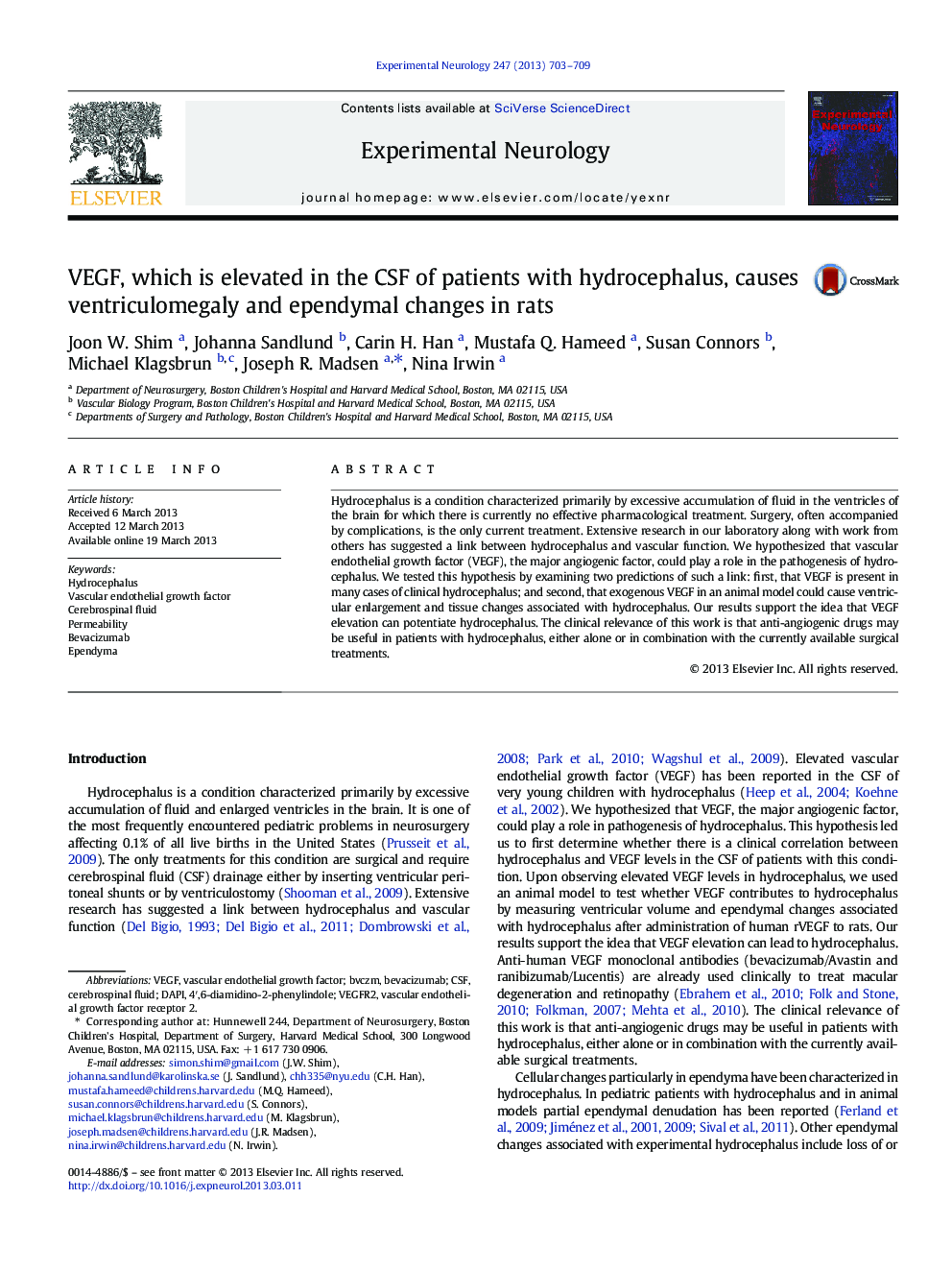| Article ID | Journal | Published Year | Pages | File Type |
|---|---|---|---|---|
| 6018387 | Experimental Neurology | 2013 | 7 Pages |
â¢Elevated VEGF found in CSF from hydrocephalus patientsâ¢Intraventricular VEGF infusion at a physiological dose in adult ratsâ¢Enhanced VEGFR2 phosphorylation, ependymal change and ventriculomegalyâ¢Reduced ventriculomegaly in simultaneous infusions of VEGF and its antagonistâ¢VEGF as a target to treat hydrocephalus
Hydrocephalus is a condition characterized primarily by excessive accumulation of fluid in the ventricles of the brain for which there is currently no effective pharmacological treatment. Surgery, often accompanied by complications, is the only current treatment. Extensive research in our laboratory along with work from others has suggested a link between hydrocephalus and vascular function. We hypothesized that vascular endothelial growth factor (VEGF), the major angiogenic factor, could play a role in the pathogenesis of hydrocephalus. We tested this hypothesis by examining two predictions of such a link: first, that VEGF is present in many cases of clinical hydrocephalus; and second, that exogenous VEGF in an animal model could cause ventricular enlargement and tissue changes associated with hydrocephalus. Our results support the idea that VEGF elevation can potentiate hydrocephalus. The clinical relevance of this work is that anti-angiogenic drugs may be useful in patients with hydrocephalus, either alone or in combination with the currently available surgical treatments.
